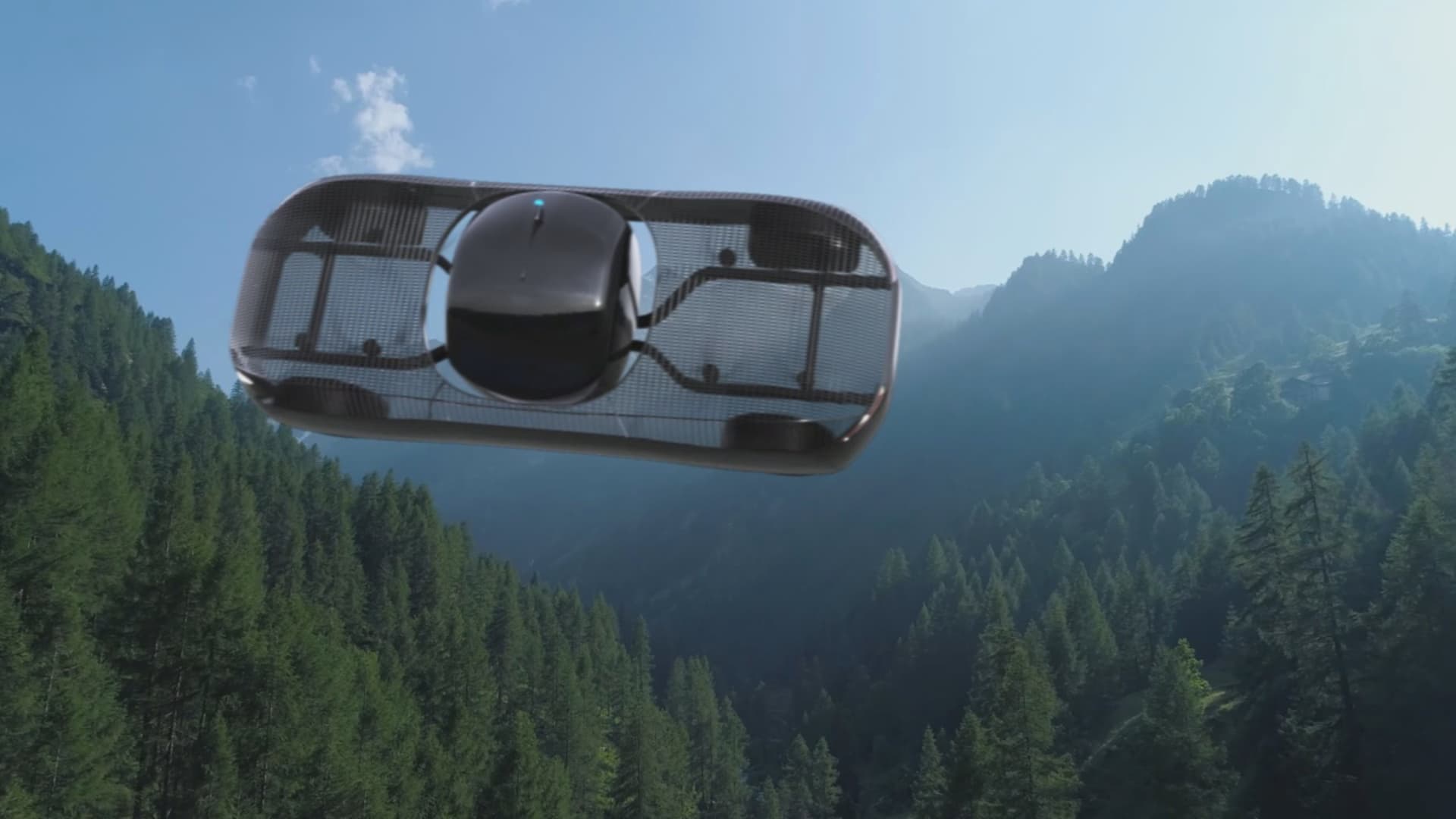Startup backed by Tesla investor promises $300,000 flying car by 2025: ‘This is not more complicated than a Toyota Corolla’

The promise of a future filled with flying cars is nothing new. For decades, futurists have touted the dream of your car lifting off and soaring above a traffic jam.
So the most interesting part of a recent prototype announcement from Santa Clara, California-based Alef Aeronautics may not be the car itself, which Alef says will be able to take off into the air vertically and fly like a helicopter up to 110 miles on a single charge.
It’s the timing: The company says it plans to begin delivering the vehicles to customers by the end of 2025.
Alef’s Model A will cost $300,000 and presales are currently open, with interested customers able to pay just a $150 deposit to get on the waiting list, or $1,500 for a “priority” spot on the list. Alef says the company has been test-driving and flying its prototype since 2019, and the version it plans to deliver to customers will also have a driving range of 200 miles.
Source: Alef Aeronautics
Alef CEO Jim Dukhovny tells CNBC Make It that the car is mostly intended to stay on roads, ideally only traveling through the air for short heights and distances to avoid specific obstacles. He refers to those moments as “hop” scenarios, “where the customer mainly uses the vehicle as a car, and only ‘hop’ over the obstacles when needed.”
In a statement in October, Dukhovny referenced “road conditions, weather and infrastructure” as potential reasons to briefly take flight.
It’s a bold concept. But for a flying car to actually appear on highways anytime soon, a lot needs to happen, experts say.
A challenging road to legality and mass production
The car’s design includes a carbon-fiber body with an open, mesh-like top that houses four propellers on each side. Once the car takes off vertically, the entire vehicle turns on its side, with the two-seat cockpit swiveling as well, allowing the propellers to steer it like an oversized flying drone.
As far as driving the vehicle, Alef says it is designed to adhere to automotive laws and regulations, making it “road legal,” according to the company.
Alef even has the backing of Tim Draper, a high-profile venture capitalist who was an early investor in both Tesla and SpaceX. His namesake Draper Associates Fund V invested $3 million of seed money in Alef in October.
Source: Alef Aeronautics
But Mike Ramsey, an auto and smart mobility analyst at Gartner, says Alef’s plans are “neat” — but contends that the company has “a tough road” ahead.
Mass production is a challenge for any car startup, and it’s often hard to get regulatory approvals to legally drive on public roads, much less fly over them, Ramsey says.
Ramsey notes that the Federal Aviation Administration has provided updated guidance on the requirements needed for ground vehicles to be legally allowed to take off and fly in public airspace. The FAA even reportedly gave another flying car concept, Samson Sky’s Switchblade, the go-ahead for flight testing in July.
Source: Alef Aeronautics
But Ramsey is adamant that, even with more clarity from the FAA and other regulators, companies looking to get their flying car concepts certified still face a “major challenge.”
“The safety requirements that every [road] vehicle has to have, how you can make that work alongside the requirements you would need to make a flying vehicle legal would be pretty substantial,” Ramsey says.
Alef hopes to speed up its regulatory process by first seeking air certification outside of the U.S., specifically in Asia and Europe, Dukhovny says: “[That] will not only help us build a safety record, but also will allow us to gather enough data to help with FAA certification process in the U.S.”
Dukhovny also plans to initially have the Model A certified as a Low Speed Vehicle (LSV), which would mean the car couldn’t exceed roughly 25 miles per hour on public roads. Alef would later seek full automotive certification, he adds.
‘That would be an incredible accomplishment’
The Model A isn’t Alef’s only bold plan: Dukhovny has also publicly announced his intention to build a cheaper version, called the Model Z, that sells for just $35,000 by 2030.
In October, Dukhovny told Reuters that the proposed Model Z would be “not more complicated than a Toyota Corolla,” and should therefore have a similar price range.
But it’s “not easy” to build a mass-produced vehicle — like the Corolla — much less turn one into a legal aircraft, Ramsey says.
“I would personally be very surprised if we have a flying vehicle like that ready for production in the next two years,” he adds. “That would be an incredible accomplishment.”
Not everyone agrees. Hugh Martin, CEO of transportation logistics startup Lacuna Technologies, told CNBC last year that he could envision commercially available flying cars as soon as 2024.
Major companies racing to be the first to put a flying car on the market include Fiat Chrysler and China’s Xpeng. Hyundai and Uber have been working on a flying taxi concept since 2020, and Hyundai subsidiary Supernal has announced plans to to launch a flying pod commercially by 2028.
But even if the cars are ready by then, regulatory approval could be a much lengthier process.
“Just the regulatory challenges are going to be pretty substantial,” Ramsey says.
Want to earn more and work less? Register for the free CNBC Make It: Your Money virtual event on Dec. 13 at 12 p.m. ET to learn from money masters how you can increase your earning power.
Sign up now: Get smarter about your money and career with our weekly newsletter









